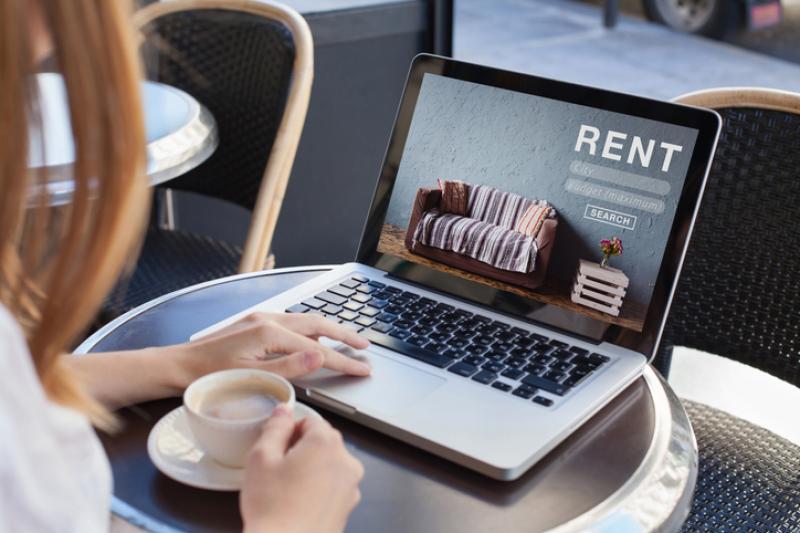
The number of households in the private rented sector in the UK has surged in recent years – up from 2.8 million in 2007 to 4.5 million in 2017, according to ONS's data (2018).
Younger households are more likely to privately rent, with 25 - 34 year olds making up the largest group. And according to the recent Zoopla UK Cities House Price Index, house prices are continuing to rise in the UK, meaning the demand for rental homes is also likely to increase.
Is renting the right choice for you?
- Do your research: Find out all you can about the private rental market in your area, including how much properties tend to rent for and the current state of the market. Speak to any friends or relatives who have experience of being landlords.
- Speak to your mortgage company: A sensible first step is to discuss the situation with your current lender. You might be required to pay an additional interest rate to reflect the change in circumstances, or potentially switch to a buy-to-let mortgage. This conversation could have considerable bearing on your final decision.
- Do your sums: Having a firm grasp of your financial situation is key. You'll need to consider a huge number of factors before deciding to rent out your home. If you're buying a new property, can you afford to finance two mortgages? What will happen if you're unable to find a tenant for a prolonged period? If you employ an agency, how much of a percentage will they take? What about paying for emergency repairs and the cost of insurance?
Are you looking to be a hands-on landlord?
It's not necessary to employ the services of a lettings agency when renting out your house. Choosing to go it alone is likely to save you money, but a good firm will take a lot of the pressure off your shoulders. This kind of support can be an invaluable for landlords who are renting out their house for the first time.
An agency will advertise your property, find potential tenants, show them around, draw up an assured shorthold tenancy agreement and deal with them on a day-to-day basis.
They'll also be able to handle credit and reference checks on your behalf, and deal with deposits through a registered scheme such as the Deposit Protection Service. The downside is they'll typically charge a fee that's equivalent to anything from 10 to 15% of your monthly rental income.
If you decide to go down this route, shop around in order to get a good deal, while bearing in mind that you'll tend to get what you pay for.
Preparing your property for the rental market
Finishing your home to a good standard is helpful too, as a good quality property will attract a good quality tenant. You'll quickly learn that someone who pays their rent on time and can be trusted to take care of your house is worth their weight in gold. Even if they decide to move on, they may well recommend your property to someone they know, limiting the amount of time the house sits empty.
As a landlord you'll be responsible for most major repairs as stipulated by the Landlord & Tenant Act 1985. Before anyone has moved in however, you'll need to ensure the house complies with all current legislation. Gas and electrical appliances will have to be safety tested by a registered professional and you'll also need to adhere to all relevant fire safety rules.
For more information, take a look at our landlord's checklist to get you started.
Do I need landlord insurance?
When you're renting out a property to private tenants, you'll need extra levels of protection that aren't offered as part of a standard home insurance policy. Landlord insurance will typically protect the building itself and any contents you own inside the property.
You'll also be able to take out cover to protect yourself against loss of rental income if a tenant fails to pay, or if the house is uninhabitable for a period of time following an accident.
Additional options available with Admiral Landlord Insurance include:
- Malicious or accidental damage by your tenant
- Theft by your tenant
- Landlord Legal Protection
- Landlord emergency cover
Do my tenants need insurance?
Some landlords of shared houses and flats require tenants to take out renters insurance, also known as tenants insurance, to cover their belongings. At the very least it's something worth recommending.
So what does renters insurance cover? It's designed to offer protection if your personal items are stolen or damaged by someone who doesn't live at the property. Cover is available to insure items against accidental damage too, and against theft or damage that occurs away from home.
Home sharing - renting out a room in your house
If becoming a full time landlord isn't for you, an alternative could be for you to remain in the property and rent a room, or even an entire floor, to a paying guest.
Thanks to the government's Rent a Room Scheme you'll also be able to earn up to £7,500 a year tax-free, while avoiding many of the financial obligations that come with renting out an entire property.
You'll still be responsible for keeping the property safe and in a good state of repair, but won't need to give a lengthy period of notice when you're ready to end the agreement.
If this sounds more appealing, you'll still need specialist cover and ours is Host Insurance. It covers you to have paying guests in your home up to a maximum of 90 days and you'll get up to £5,000 for collective high-risk items if they're stolen or broken when not locked away.


